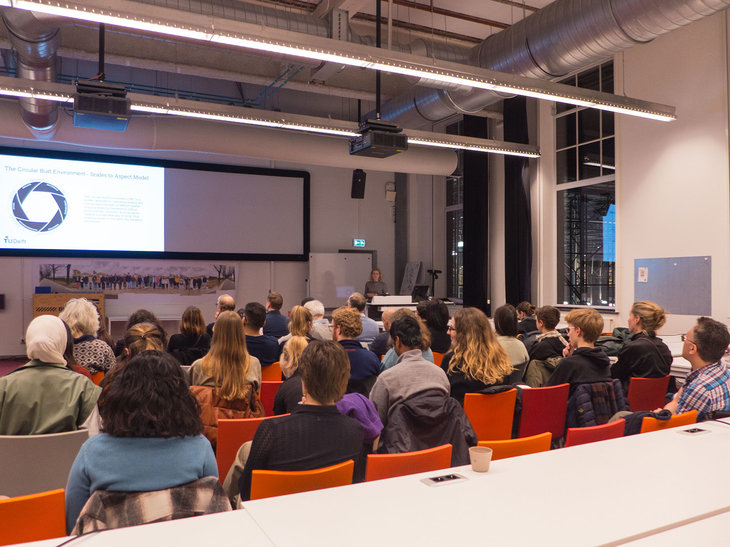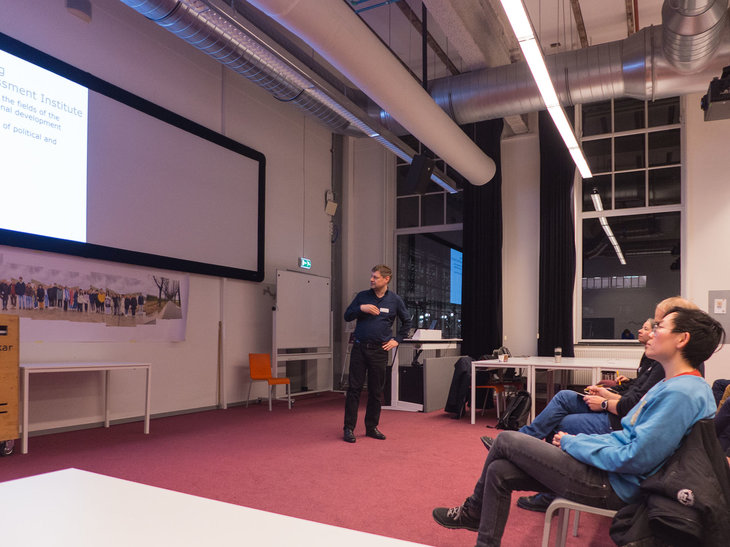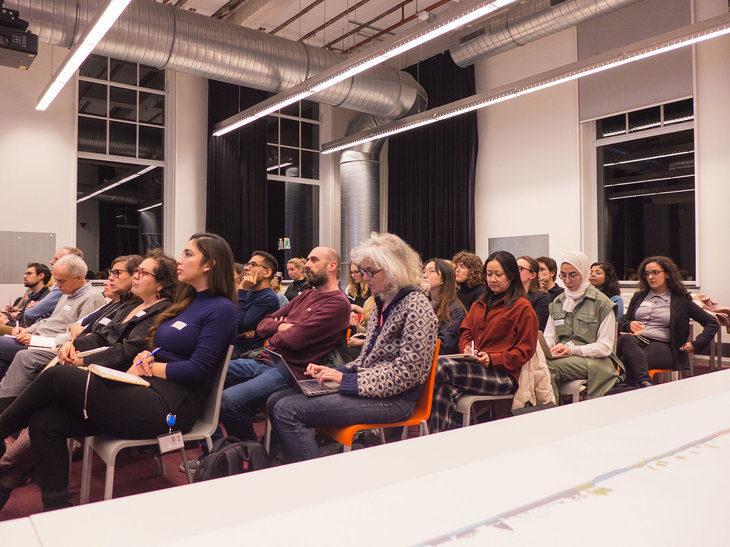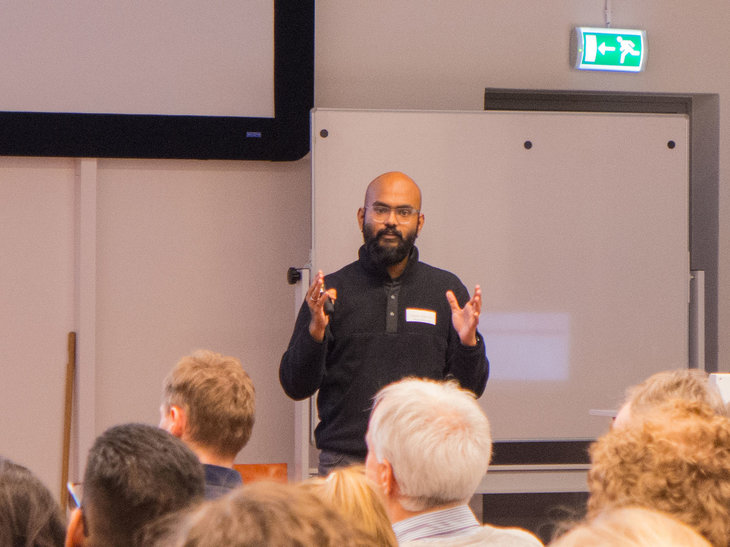Public debate: The often overlooked role of space in the circular economy transition
On 13 February 2024, the Circular Built Environment Hub organised the public debate 'The often overlooked role of space in the circular economy transition'. This debate focused on the spatial dimensions of the circular economy.
Institutes, organisations and individuals participated in this interactive session that aimed to identify spatial conflicts, synergies, and potentials, paving the way for a future Circular Netherlands. The event began with a series of thought-provoking contributions designed to challenge perspectives and ignite lively debate. In the second part, we co-developed a systemic section for the Dutch circular built environment to ground the discussion.
Invited guests
-
Emil Evenhuis is a researcher within the spatial economy unit of PBL - Netherlands Environmental Assessment Agency (‘Planbureau voor de Leefomgeving’), the national institute for strategic policy analysis in the fields of the environment, nature, spatial planning and regional development in the Netherlands. He has a background in economic geography, economics and philosophy. His recent work at PBL focuses on the spatial and geographical implications of the transition to a circular economy. As part of the project team for the Spatial Outlook 2023 for the Netherlands (‘Ruimtelijke Verkenning 2023’), he has looked at the potential changes which a circular economy may bring about in urban areas, business parks & sites, and industrial zones in the coming decades; and what this means for spatial planning. Emil is also a visiting lecturer at Radboud University Nijmegen and a member of the Cambridge Journal of Regions, Economy and Society editorial board.
-
Ganesh Babu R P is an architect and urban planner at PosadMaxwan. He completed his Bachelor's degree in Architecture at Anna University, Chennai, and his Master's in Urbanism at TU Delft. At PosadMaxwan, he has worked on various projects, including area development, infrastructure studies, transition research (mobility, energy, and circular transitions), regional development strategies, and national spatial plans. He uses systemic thinking as a starting point to connect challenges across different scales and systems, integrating them effectively. He specialises in integral design thinking and visually representing complex issues and data.
-
Mariana Faver graduated in 2005 as an architect and urbanist from the Federal University of Rio de Janeiro. She worked for two years as head of the public construction and urbanism department of the municipality of Miracema-RJ in Brazil. In 2007 she started the European Postgraduate Masters in Urbanism at the TU Delft, including one semester at the UPC Barcelona. After finishing the course, she worked at the Deltametropolis Association for eight years. Mariana works since 2019 as a spatial explorer at the Province of South-Holland focusing on the development of spatial policies and strategies.
Public debate series
This debate is organised as part of the 'Making the Circular Built Environment a Reality' debate series.
Upcoming debate:
People matter: exploring the social relevance of circularity
9 April 2024, 19:00 - 21:00
Faculty of Architecture and the Built Environment, TU Delft (Berlage room)






